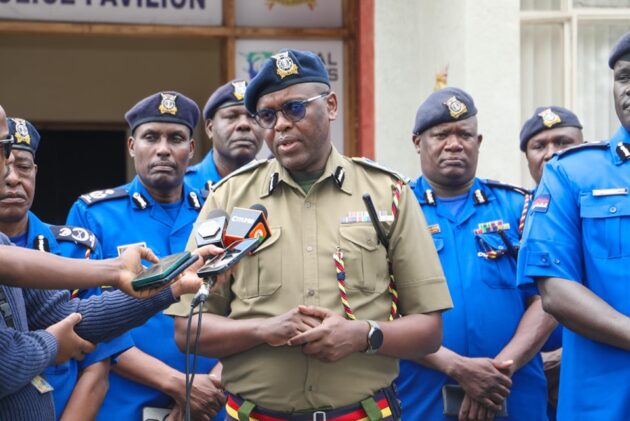
DIG Lagat says court cannot order his prosecution over Albert Ojwang’s death » Capital News
NAIROBI, Kenya Aug 11 – Deputy Inspector General of Police Eliud Lagat says the High Court lacks the legal authority to order his prosecution over the alleged abduction, torture, and killing of Albert Ojwang, insisting that the claims against him are unfounded, speculative, and unsupported by any credible evidence.
Through his lawyer, Cecil Miller, Lagat mounted a defence in submissions responding to a petition implicating him in Ojwang’s murder.
The petitioners have urged the court to declare him culpable over the incident and order his prosecution.
But Miller argued that such prayers run afoul of both constitutional safeguards and long-standing legal principles, noting that the petitioners had failed to produce even a prima facie case against the senior police officer.
“Your Lordship, the Petitioners have not provided any prima facie or cogent evidence linking the 11th Respondent to the alleged torture, abduction, or death of the deceased. The allegations are speculative and unsubstantiated,” the court papers read.
The lawyer emphasised that at the time of the incident, Lagat’s role as Deputy Inspector General was purely administrative and command-based and that he had no operational involvement, did not issue unlawful orders, and was not present at the scene.
The defence further anchored its position on the findings of two independent constitutional and statutory bodies the Independent Policing Oversight Authority (IPOA) and the Office of the Director of Public Prosecutions (ODPP) both of which investigated the matter and cleared Lagat of any wrongdoing.
“The IPOA… conducted thorough investigations and found no evidence linking the 11th Respondent to the deceased’s death,” Miller submitted.
“The ODPP… made an independent prosecutorial decision to charge other individuals… The decision not to charge the 11th Respondent was based on the absence of incriminating evidence and cannot be faulted.”
Miller reminded the court of the constitutional independence of the DPP, citing Article 157(10), which expressly bars any person or authority from directing or controlling the DPP in the exercise of prosecutorial powers.
“A court cannot compel prosecution unless the DPP has acted in bad faith, without evidence, or contrary to constitutional dictates none of which is demonstrated here,” he said.
The lawyer contended that the orders sought by the petitioners including declarations of guilt without trial and directives for the DPP to institute charges would amount to a judicial overreach and a breach of the separation of powers between the judiciary and the executive.
“The Court cannot declare someone guilty without a trial. Nor can it force the DPP to prosecute absent manifest failure of duty,” Miller argued.
“Further, there is no provision in law allowing courts to direct removal of a DIG without a disciplinary process.”
He also accused the petitioners of abusing the court process by re-litigating matters that had already been investigated and settled by competent authorities, without introducing any new evidence.
“After thorough investigation and exoneration by both IPOA and DPP, continued litigation… against the 11th Respondent is vexatious. It amounts to trial by publicity and not law,” Miller said.
“Courts must not allow themselves to be used as vehicles of oppression, or as platforms for public shaming without substantiated legal basis.”
Ojwang, a 31-year-old teacher and blogger from Homa Bay County, died in police custody in June 2025, sparking national outrage and protests over alleged police brutality.
He was arrested at home on June 7, reportedly over social media posts critical of senior police leadership, and transported to Central Police Station in Nairobi.
The following morning, he was found unconscious in his cell and later pronounced dead at Mbagathi Hospital.
Police initially claimed he had injured himself, but an autopsy revealed blunt force trauma, neck compression, and multiple soft tissue injuries findings consistent with assault rather than self-harm.